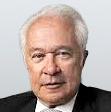Commentary
Despite modern technology, there is no better way to send a message to the world than from a well-written and timely book.


Despite modern technology, there is no better way to send a message to the world than from a well-written and timely book.